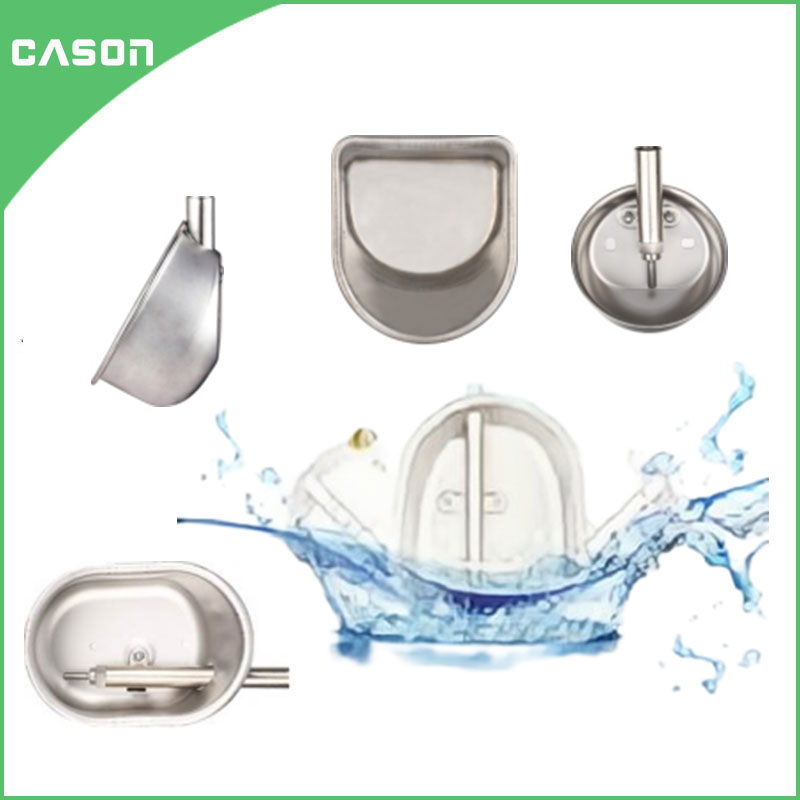Types of pig water fountains
2023-12-29
A pig water fountain, also known as a pig waterer or pig drinker, is a system designed to provide a continuous and accessible water supply for pigs. It is an essential component of pig farming to ensure that pigs have access to clean and fresh water at all times. Here are some common types of pig water fountains:
1. Nipple Waterers:
- Design: Nipple waterers consist of a nipple or drinker that releases water when the pig applies pressure to it with its snout.
- Advantages: They help keep the water clean and reduce the likelihood of contamination, as the water is not exposed to the environment.
2. Bowl Waterers:
- Design: Bowl waterers consist of a bowl filled with water. Pigs can drink directly from the bowl.
- Advantages: They are simple and easy for pigs to use. Some designs include automatic refilling mechanisms to maintain a constant water level.
3. Cup Waterers:
- Design: Cup waterers have a small cup-like structure that releases water when the pig pushes on it.
- Advantages: Similar to nipple waterers, cup waterers help keep the water clean and are suitable for various pig ages.
4. Automatic Watering Systems:
- Design: These systems are connected to a water source and are designed to provide a continuous and automated supply of water to pig pens.
- Advantages: Automatic waterers ensure a consistent water supply, reduce labor requirements, and minimize water wastage.
5. Fountain Waterers:
- Design: Fountain waterers typically have a centrally located water source from which pigs can drink. They may include a bowl or basin around the fountain.
- Advantages: Fountain waterers can accommodate multiple pigs simultaneously, making them suitable for larger groups.
When choosing a pig water fountain, factors such as pig size, age, and the number of pigs in the group should be considered. It's essential to regularly clean and maintain the waterers to prevent contamination and ensure the health of the pigs.
Proper water management is crucial in pig farming, as water plays a vital role in the overall health, growth, and production performance of pigs. Regularly monitoring water quality and ensuring a consistent and clean water supply contribute to the well-being of the pigs and the success of the pig farming operation.



